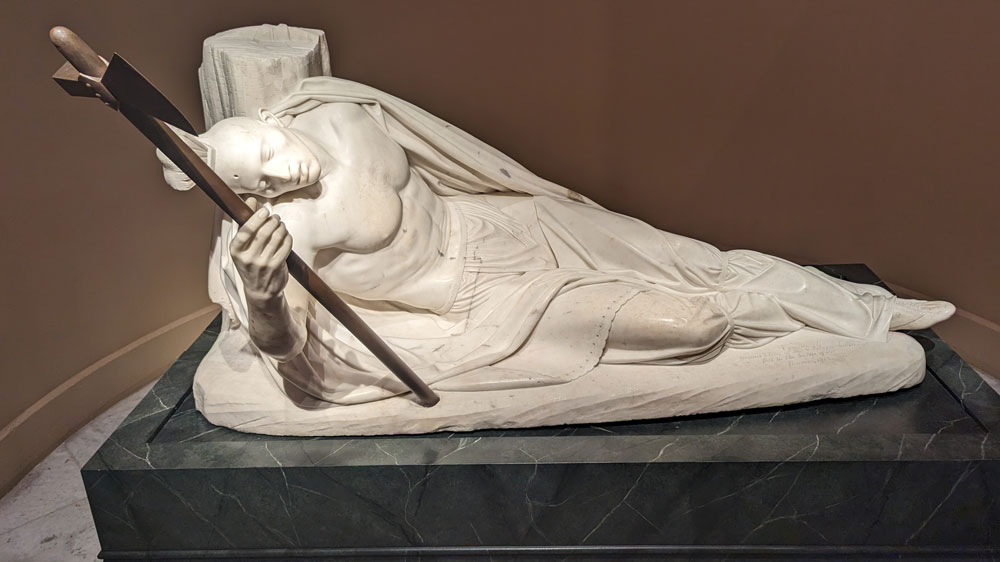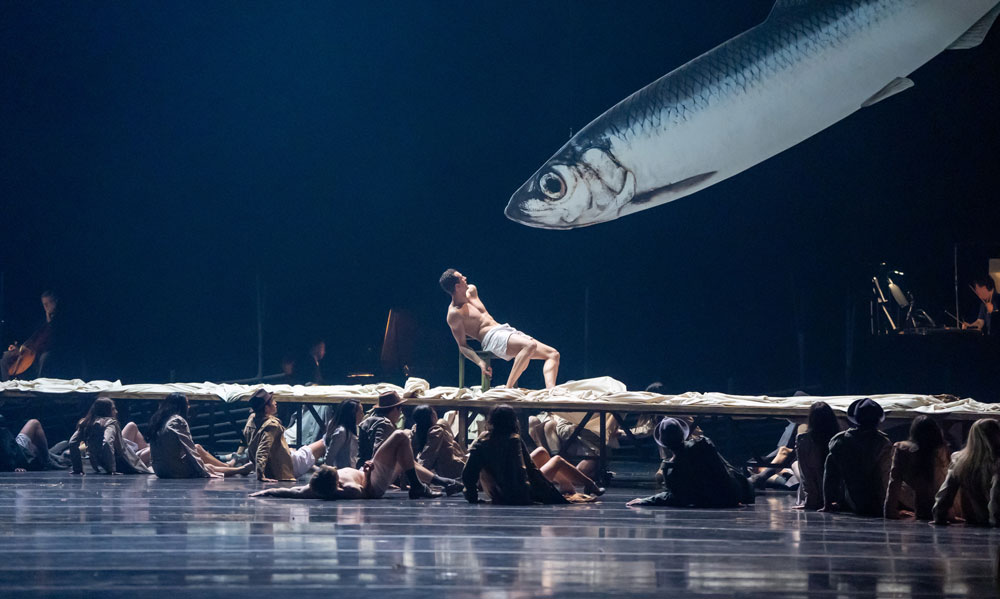The sensory impact of David Rice’s The Madness of Edgar Allan Poe: A Love Story, now extended to November 21st in Oak Park, may be it strongest asset. Performed by the Oak Park Festival Theater (OPFT), the play capitalizes on the suburb’s rich architectural heritage to transport audiences back in time and revive a forgotten past. It also resurrects the greatness of one of this country’s most skilled writers.
This marks the third year the play is being presented during the Halloween season. Even in that short time, it’s likely already developed a following who make it an annual tradition. The story is strong enough and the experience unique enough to warrant it. For others, the play will function as much as an adventure as it will an entertainment outing. Considered an immersive presentation, with the feet of the audience and those of the actors resting on the same level and on the same floor, closeness is a key component of a play like this. Even more critical is how it feels.
It’s been a boon that the OPFT has been able to tap into Oak Park’s architectural treasures, many of them large and imposing, to stage these productions. A stately mansion, Pleasant Home, with an incredibly beautiful and expansive hobbit shaped entrance door, houses the play this year. Crossing its threshold lands you in another age. The atmosphere of the house seemed perfectly in tune with the era when Poe lived and gained notoriety in Baltimore, the early and middle 1800s. Waistcoats, pantaloons, empire dresses and bonnets were the norm and Edison was yet to invent the light bulb.
Each show only accommodates around 50 people who sit expectantly in an extended, dimly lit two-room parlor as they wait for the show to begin. When it does, the transformation of reality is complete. In period dress and using the vocabulary and diction common two centuries ago, Christian Gray as Edgar Allan Poe staggered into the room distraught, anxious and talking to ghosts. Weaving in the poetry from The Bells, his speech was one of pure passion as he worried about his wife, Virginia (Erica Bittner).
Loss and the fear of loss make up the spine of Madness and defines the referenced love story. Life spans, even for the privileged during Poe’s lifetime, weren’t long. Poe had suffered through the deaths of key members of his family when he was still quite young. These losses, according to the ghost of his wife, “filled a corner of his soul” and helped spawn the darkness that flowed from his pen.
The play has no intermission but does incorporate unconventional transitions that breaks the audience into two groups and takes them on separate journeys. Guided to different rooms in the mansion, how the play developed from this point is solely determined by what group you’re in. In one, there are three individual one-person scenes that elevated an already admirable play into something exceptional.
The first followed Virginia to a private room where she’s preparing tea and thinking about how she came to fall in love with and marry her cousin, despite her age and other people’s concerns. The strength of Bittner’s acting vaporized any separation from her musings and the audience’s apprehensions about their truth. When she confronts the inevitable conclusion of the disease that killed her, tuberculosis, we’re treated to a renewed appreciation of acting as a extraordinary craft.
In an upstairs room, standing just a few feet away from the front row, Will Burdin was immediately captivating in his role as the madman in one of Poe’s most celebrated short stories, The Telltale Heart. The small space, Burdin’s resonant voice and the Hitchcockian intensity he created as he explained his rationale for murder is a credit to his performance skills and to the savvy direction of Bryan Wakefield. As good as it was, it didn’t sustain its magic with the grip of Noah Villarreal. Cast as the prisoner in the Pit and the Pendulum, the final solo scene featuring Villarreal rested solely on two things, the written word and how it was delivered. Standing against a bare wall in low light, Villarreal took the audience to a rat filled dungeon as the swinging blade of a pendulum slowly descended to end his life. His words and the atmosphere he helped create with them reminded you that terror is an inescapable component of torture. The scene was one of the quietest and probably the most powerful of the production.
If you don’t know Poe’s work particularly well, you may not immediately catch which of his work’s is being referenced in each episodic scene. Not knowing just gives you free rein to provide your own interpretation of its meaning. The last scene revealing playwright David Rice’s interpretation of The Mask of the Red Death will likely have you drawing parallels to our own bout with plague. Presented with melodramatic grandeur, the folly of facing the inevitable with arrogance turns out to be a takeaway you could apply both to Poe’s red menace and the contagion we confront today.
The Madness of Edgar Allan Poe: A Love Story
Through Nov. 21, 2021
Oak Park Festival Theater
217 Home Avenue
Oak Park, IL


